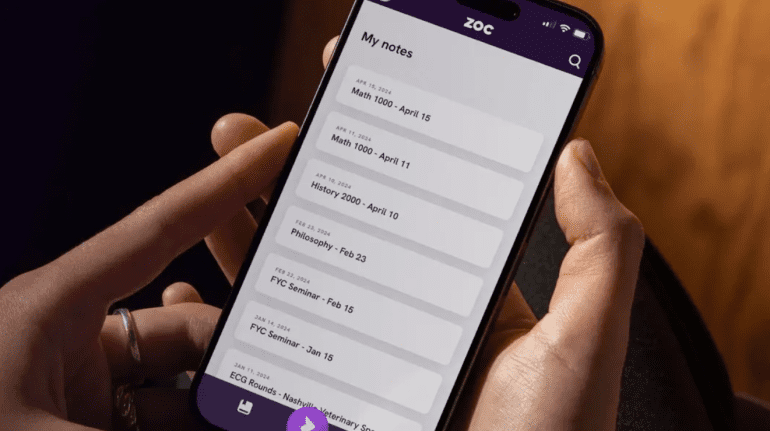- Zoc, founded by Jason Seiken, integrates AI into classrooms to aid students.
- Features include real-time transcription, organized notes, and tutoring tools.
- It supports students with learning differences and language challenges.
- Recognition: Two 2024 Webby nominations for innovation and responsible AI.
- Plans for B2B partnerships with universities to sustain its free-to-use model.
Main AI News:
Zoc, an innovative AI application, is revolutionizing the educational landscape by providing personalized support to students directly in the classroom. Founded by Jason Seiken, a seasoned media executive whose career spans AOL, PBS, and the London Daily Telegraph, Zoc aims to level the academic playing field for students with diverse learning needs and language differences.
In a recent interview, Seiken shared his vision for Zoc, emphasizing its potential to transform studying into a more engaging and stress-free experience. The app seamlessly integrates into classroom environments, allowing students to capture transcripts and receive well-organized notes in real-time. This feature eliminates the traditional need for manual note-taking, enabling students to concentrate fully on the lecture content.
Beyond its transcription capabilities, Zoc offers a comprehensive suite of educational tools designed to enhance learning outcomes. These include tutoring functionalities for self-assessment, essay evaluation for improving writing skills, and translation services covering 29 languages, catering particularly to non-native English speakers.
Dr. Judy Parker, Zoc’s Chief Learning Scientist, highlighted the positive impact of AI tools on at-risk students, citing ongoing studies aimed at quantifying Zoc’s effectiveness in improving learning performance.
Zoc has received notable recognition for its innovative approach, earning two nominations at the 2024 Webby Awards in the Experimental & Innovation and Work & Productivity categories. It also secured a Webby Honor in the Responsible AI category, underscoring Seiken’s commitment to ethical AI development.
Looking ahead, Zoc plans to establish B2B partnerships with universities and educational institutions to sustain its free-to-use model. This initiative aims to support students with diverse learning needs and language challenges, including those with dyslexia, hearing loss, ADHD, and non-native English speakers. These student demographics receive significant funding annually from both government and private sectors, highlighting the substantial market opportunity for Zoc.
Addressing concerns about academic integrity in the digital age, Seiken emphasized that Zoc is designed to enhance the learning process rather than facilitate cheating. He reiterated that the AI component of Zoc is secure and inaccessible for any misuse, ensuring its role as a supportive tool in education.
As AI continues to reshape the educational landscape, Zoc stands out as a pioneer in leveraging technology for social good. By combining proven educational frameworks with cutting-edge AI capabilities, Zoc exemplifies the potential of technology to enhance and democratize access to quality education globally.
Conclusion:
Zoc’s innovative application of AI in education represents a significant advancement in enhancing learning accessibility and effectiveness. By addressing diverse learning needs and integrating seamlessly into educational environments, Zoc not only improves student engagement but also opens new avenues for educational technology partnerships. This strategic approach positions Zoc at the forefront of educational innovation, poised to capitalize on growing demand for inclusive and effective learning solutions in the market.

